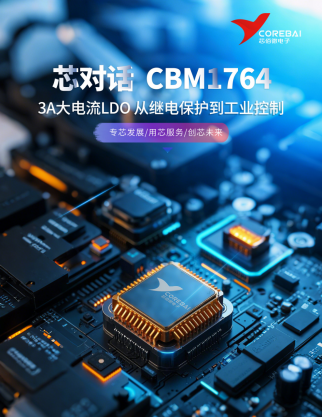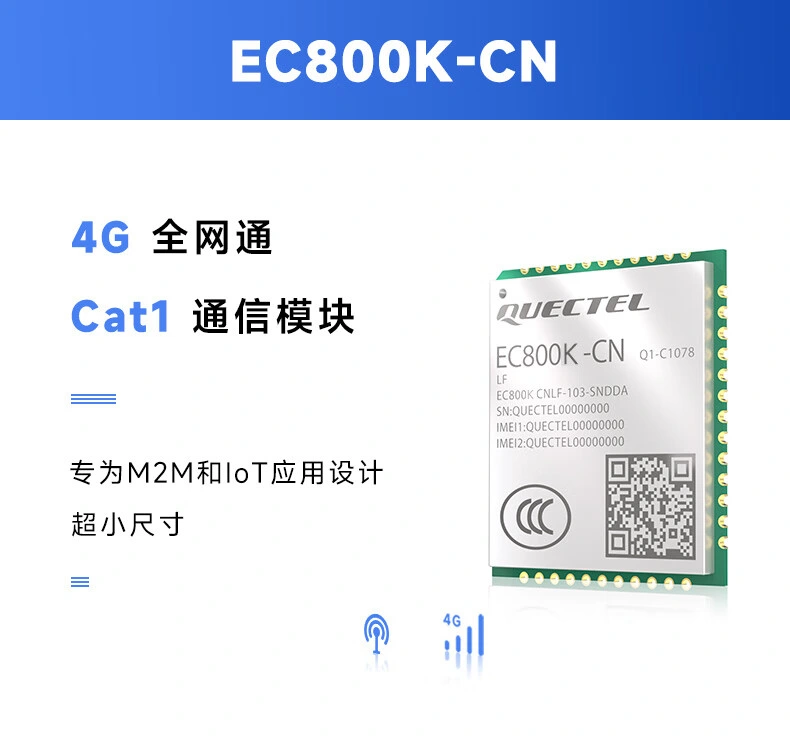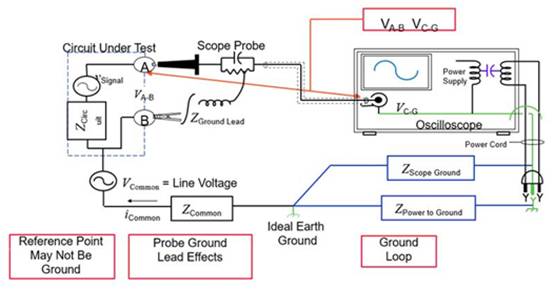IAR软件main.c文件中函数先后组织次序,我一般将主函数放到最终,调用的函数放在上面。这样能够省去了被调函数的声明。
* Function Name : RCC_Configuration
* Description : Configures the different system clocks.
* Input : None
* Output : None
* Return : None
*******************************************************************************/
void RCC_Configuration(void)
{
ErrorStatus HSEStartUpStatus;
/* RCC system reset(for debug purpose) */
RCC_DeInit();
/* Enable HSE */
RCC_HSEConfig(RCC_HSE_ON);
/* Wait till HSE is ready */
HSEStartUpStatus = RCC_WaitForHSEStartUp();
if(HSEStartUpStatus == SUCCESS)
{
/* Enable Prefetch Buffer */
FLASH_PrefetchBufferCmd(FLASH_PrefetchBuffer_Enable);
/* Flash 2 wait state */
FLASH_SetLatency(FLASH_Latency_2);
/* HCLK = SYSCLK */
RCC_HCLKConfig(RCC_SYSCLK_Div1);
/* PCLK2 = HCLK */
RCC_PCLK2Config(RCC_HCLK_Div1);
/* PCLK1 = HCLK/2 */
RCC_PCLK1Config(RCC_HCLK_Div2);
/* PLLCLK = 8MHz * 9 = 72 MHz */
RCC_PLLConfig(RCC_PLLSource_HSE_Div1, RCC_PLLMul_9);
/* Enable PLL */
RCC_PLLCmd(ENABLE);
/* Wait till PLL is ready */
while(RCC_GetFlagStatus(RCC_FLAG_PLLRDY) == RESET)
{
}
/* Select PLL as system clock source */
RCC_SYSCLKConfig(RCC_SYSCLKSource_PLLCLK);
/* Wait till PLL is used as system clock source */
while(RCC_GetSYSCLKSource() != 0x08)
{
}
}
}
/*******************************************************************************
* Function Name : NVIC_Configuration
* Description : Configures Vector Table base location.
* Input : None
* Output : None
* Return : None
*******************************************************************************/
void NVIC_Configuration(void)
{
#ifdef VECT_TAB_RAM
/* Set the Vector Table base location at 0x20000000 */
NVIC_SetVectorTable(NVIC_VectTab_RAM, 0x0);
#else /* VECT_TAB_FLASH */
/* Set the Vector Table base location at 0x08000000 */
NVIC_SetVectorTable(NVIC_VectTab_FLASH, 0x0);
#endif
}
/*******************************************************************************
* Function Name : GPIO_Configuration
* Description : Configures the different GPIO ports.
* Input : None
* Output : None
* Return : None
*******************************************************************************/
void GPIO_Configuration(void)
{
/* Enable GPIOC clock */
RCC_APB2PeriphClockCmd(RCC_APB2Periph_GPIOC, ENABLE);
GPIO_InitTypeDef GPIO_InitStructure;
/* Configure PC.06, PC.07, PC.08 and PC.09 as Output push-pull */
GPIO_InitStructure.GPIO_Pin = GPIO_Pin_6 | GPIO_Pin_7 | GPIO_Pin_8 | GPIO_Pin_9;
GPIO_InitStructure.GPIO_Speed = GPIO_Speed_50MHz;
GPIO_InitStructure.GPIO_Mode = GPIO_Mode_Out_PP;
GPIO_Init(GPIOC, &GPIO_InitStructure);
}
/*******************************************************************************
* Function Name : Delay
* Description : Inserts a delay time.
* Input : nCount: specifies the delay time length.
* Output : None
* Return : None
*******************************************************************************/
void Delay(vu32 nCount)
{
for(; nCount != 0; nCount–);
}
#ifdef DEBUG
/*******************************************************************************
* Function Name : assert_failed
* Description : Reports the name of the source file and the source line number
* where the assert_param error has occurred.
* Input : – file: pointer to the source file name
* – line: assert_param error line source number
* Output : None
* Return : None
*******************************************************************************/
void assert_failed(u8* file, u32 line)
{
/* User can add his own implementation to report the file name and line number,
ex: printf(“Wrong parameters value: file %s on line %d\r\n”, file, line) */
/* Infinite loop */
while (1)
{
}
}
#endif
/*******************************************************************************
* Function Name : main
* Description : Main program.
* Input : None
* Output : None
* Return : None
*******************************************************************************/
int main(void)
{
#ifdef DEBUG
debug();
#endif
/* Configure the system clocks */
RCC_Configuration();
/* NVIC Configuration */
NVIC_Configuration();
/* Configure the GPIO ports */
GPIO_Configuration();
/* Infinite loop */
while (1)
{
GPIO_SetBits(GPIOC,GPIO_Pin_6);//点亮LED1
Delay(1000000);
Delay(1000000);//多点亮一会,使人能看到LED的切当改变
GPIO_ResetBits(GPIOC,GPIO_Pin_6);//平息LED1
GPIO_SetBits(GPIOC,GPIO_Pin_7);//点亮LED2
Delay(1000000);
Delay(1000000);
GPIO_ResetBits(GPIOC,GPIO_Pin_7);//平息LED2
GPIO_SetBits(GPIOC,GPIO_Pin_8);//点亮LED3
Delay(1000000);
Delay(1000000);
GPIO_ResetBits(GPIOC,GPIO_Pin_8);//平息LED3
GPIO_SetBits(GPIOC,GPIO_Pin_9);//点亮LED4
Delay(1000000);
Delay(1000000);
GPIO_ResetBits(GPIOC,GPIO_Pin_9);//平息LED4
}
}
#ifdef DEBUG
/*******************************************************************************
* Function Name : debug
* Description : This function initialize peripherals pointers.
* Input : None
* Output : None
* Return : None
*******************************************************************************/
void debug(void)
{
/************************************* ADC ************************************/
#ifdef _ADC1
ADC1 = (ADC_TypeDef *) ADC1_BASE;
#endif /*_ADC1 */
#ifdef _ADC2
ADC2 = (ADC_TypeDef *) ADC2_BASE;
#endif /*_ADC2 */
/************************************* BKP ************************************/
#ifdef _BKP
BKP = (BKP_TypeDef *) BKP_BASE;
#endif /*_BKP */
/************************************* CAN ************************************/
#ifdef _CAN
CAN = (CAN_TypeDef *) CAN_BASE;
#endif /*_CAN */
/************************************* DMA ************************************/
#ifdef _DMA
DMA = (DMA_TypeDef *) DMA_BASE;
#endif /*_DMA */
#ifdef _DMA_Channel1
DMA_Channel1 = (DMA_Channel_TypeDef *) DMA_Channel1_BASE;
#endif /*_DMA_Channel1 */
#ifdef _DMA_Channel2
DMA_Channel2 = (DMA_Channel_TypeDef *) DMA_Channel2_BASE;
#endif /*_DMA_Channel2 */
#ifdef _DMA_Channel3
DMA_Channel3 = (DMA_Channel_TypeDef *) DMA_Channel3_BASE;
#endif /*_DMA_Channel3 */
#ifdef _DMA_Channel4
DMA_Channel4 = (DMA_Channel_TypeDef *) DMA_Channel4_BASE;
#endif /*_DMA_Channel4 */
#ifdef _DMA_Channel5
DMA_Channel5 = (DMA_Channel_TypeDef *) DMA_Channel5_BASE;
#endif /*_DMA_Channel5 */
#ifdef _DMA_Channel6
DMA_Channel6 = (DMA_Channel_TypeDef *) DMA_Channel6_BASE;
#endif /*_DMA_Channel6 */
#ifdef _DMA_Channel7
DMA_Channel7 = (DMA_Channel_TypeDef *) DMA_Channel7_BASE;
#endif /*_DMA_Channel7 */
/************************************* EXTI ***********************************/
#ifdef _EXTI
EXTI = (EXTI_TypeDef *) EXTI_BASE;
#endif /*_EXTI */
/************************************* FLASH and Option Bytes *****************/
#ifdef _FLASH
FLASH = (FLASH_TypeDef *) FLASH_BASE;
OB = (OB_TypeDef *) OB_BASE;
#endif /*_FLASH */
/************************************* GPIO ***********************************/
#ifdef _GPIOA
GPIOA = (GPIO_TypeDef *) GPIOA_BASE;
#endif /*_GPIOA */
#ifdef _GPIOB
GPIOB = (GPIO_TypeDef *) GPIOB_BASE;
#endif /*_GPIOB */
#ifdef _GPIOC
GPIOC = (GPIO_TypeDef *) GPIOC_BASE;
#endif /*_GPIOC */
#ifdef _GPIOD
GPIOD = (GPIO_TypeDef *) GPIOD_BASE;
#endif /*_GPIOD */
#ifdef _GPIOE
GPIOE = (GPIO_TypeDef *) GPIOE_BASE;
#endif /*_GPIOE */
#ifdef _AFIO
AFIO = (AFIO_TypeDef *) AFIO_BASE;
#endif /*_AFIO */
/************************************* I2C ************************************/
#ifdef _I2C1
I2C1 = (I2C_TypeDef *) I2C1_BASE;
#endif /*_I2C1 */
#ifdef _I2C2
I2C2 = (I2C_TypeDef *) I2C2_BASE;
#endif /*_I2C2 */
/************************************* IWDG ***********************************/
#ifdef _IWDG
IWDG = (IWDG_TypeDef *) IWDG_BASE;
#endif /*_IWDG */
/************************************* NVIC ***********************************/
#ifdef _NVIC
NVIC = (NVIC_TypeDef *) NVIC_BASE;
SCB = (SCB_TypeDef *) SCB_BASE;
#endif /*_NVIC */
/************************************* PWR ************************************/
#ifdef _PWR
PWR = (PWR_TypeDef *) PWR_BASE;
#endif /*_PWR */
/************************************* RCC ************************************/
#ifdef _RCC
RCC = (RCC_TypeDef *) RCC_BASE;
#endif /*_RCC */
/************************************* RTC ************************************/
#ifdef _RTC
RTC = (RTC_TypeDef *) RTC_BASE;
#endif /*_RTC */
/************************************* SPI ************************************/
#ifdef _SPI1
SPI1 = (SPI_TypeDef *) SPI1_BASE;
#endif /*_SPI1 */
#ifdef _SPI2
SPI2 = (SPI_TypeDef *) SPI2_BASE;
#endif /*_SPI2 */
/************************************* SysTick ********************************/
#ifdef _SysTick
SysTick = (SysTick_TypeDef *) SysTick_BASE;
#endif /*_SysTick */
/************************************* TIM1 ***********************************/
#ifdef _TIM1
TIM1 = (TIM1_TypeDef *) TIM1_BASE;
#endif /*_TIM1 */
/************************************* TIM ************************************/
#ifdef _TIM2
TIM2 = (TIM_TypeDef *) TIM2_BASE;
#endif /*_TIM2 */
#ifdef _TIM3
TIM3 = (TIM_TypeDef *) TIM3_BASE;
#endif /*_TIM3 */
#ifdef _TIM4
TIM4 = (TIM_TypeDef *) TIM4_BASE;
#endif /*_TIM4 */
/************************************* USART **********************************/
#ifdef _USART1
USART1 = (USART_TypeDef *) USART1_BASE;
#endif /*_USART1 */
#ifdef _USART2
USART2 = (USART_TypeDef *) USART2_BASE;
#endif /*_USART2 */
#ifdef _USART3
USART3 = (USART_TypeDef *) USART3_BASE;
#endif /*_USART3 */
/************************************* WWDG ***********************************/
#ifdef _WWDG
WWDG = (WWDG_TypeDef *) WWDG_BASE;
#endif /*_WWDG */
}
#endif /* DEBUG*/
这个看着比较了解,如同在哪见过,没错,在stm32f10x_map.h中就有这些界说,这便是为什么,在stm32f10x_config.h中将DEBUF宏界说注释起来时,也能编译曩昔的原因。
/* Includes ——————————————————————*/
#include “stm32f10x_conf.h”
#include “stm32f10x_type.h”
#include “cortexm3_macro.h”
/* Exported types ————————————————————*/
/******************************************************************************/
/* Peripheral registers structures */
/******************************************************************************/
/*———————— Analog to Digital Converter ———————–*/
typedef struct
{
vu32 SR;
vu32 CR1;
vu32 CR2;
vu32 SMPR1;
vu32 SMPR2;
vu32 JOFR1;
vu32 JOFR2;
vu32 JOFR3;
vu32 JOFR4;
vu32 HTR;
vu32 LTR;
vu32 SQR1;
vu32 SQR2;
vu32 SQR3;
vu32 JSQR;
vu32 JDR1;
vu32 JDR2;
vu32 JDR3;
vu32 JDR4;
vu32 DR;
} ADC_TypeDef;
/*———————— Backup Registers ———————————-*/
typedef struct
{
u32 RESERVED0;
vu16 DR1;
u16 RESERVED1;
vu16 DR2;
u16 RESERVED2;
vu16 DR3;
u16 RESERVED3;
vu16 DR4;
u16 RESERVED4;
vu16 DR5;
u16 RESERVED5;
vu16 DR6;
u16 RESERVED6;
vu16 DR7;
u16 RESERVED7;
vu16 DR8;
u16 RESERVED8;
vu16 DR9;
u16 RESERVED9;
vu16 DR10;
u16 RESERVED10;
vu16 RTCCR;
u16 RESERVED11;
vu16 CR;
u16 RESERVED12;
vu16 CSR;
u16 RESERVED13;
} BKP_TypeDef;
/*———————— Controller Area Network —————————*/
typedef struct
{
vu32 TIR;
vu32 TDTR;
vu32 TDLR;
vu32 TDHR;
} CAN_TxMailBox_TypeDef;
typedef struct
{
vu32 RIR;
vu32 RDTR;
vu32 RDLR;
vu32 RDHR;
} CAN_FIFOMailBox_TypeDef;
typedef struct
{
vu32 FR0;
vu32 FR1;
} CAN_FilterRegister_TypeDef;
typedef struct
{
vu32 MCR;
vu32 MSR;
vu32 TSR;
vu32 RF0R;
vu32 RF1R;
vu32 IER;
vu32 ESR;
vu32 BTR;
u32 RESERVED0[88];
CAN_TxMailBox_TypeDef sTxMailBox[3];
CAN_FIFOMailBox_TypeDef sFIFOMailBox[2];
u32 RESERVED1[12];
vu32 FMR;
vu32 FM0R;
u32 RESERVED2[1];
vu32 FS0R;
u32 RESERVED3[1];
vu32 FFA0R;
u32 RESERVED4[1];
vu32 FA0R;
u32 RESERVED5[8];
CAN_FilterRegister_TypeDef sFilterRegister[14];
} CAN_TypeDef;
/*———————— DMA Controller ————————————*/
typedef struct
{
vu32 CCR;
vu32 CNDTR;
vu32 CPAR;
vu32 CMAR;
} DMA_Channel_TypeDef;
typedef struct
{
vu32 ISR;
vu32 IFCR;
} DMA_TypeDef;
/*———————— External Interrupt/Event Controller —————*/
typedef struct
{
vu32 IMR;
vu32 EMR;
vu32 RTSR;
vu32 FTSR;
vu32 SWIER;
vu32 PR;
} EXTI_TypeDef;
/*———————— FLASH and Option Bytes Registers ——————*/
typedef struct
{
vu32 ACR;
vu32 KEYR;
vu32 OPTKEYR;
vu32 SR;
vu32 CR;
vu32 AR;
vu32 RESERVED;
vu32 OBR;
vu32 WRPR;
} FLASH_TypeDef;
typedef struct
{
vu16 RDP;
vu16 USER;
vu16 Data0;
vu16 Data1;
vu16 WRP0;
vu16 WRP1;
vu16 WRP2;
vu16 WRP3;
} OB_TypeDef;
/*———————— General Purpose and Alternate Function IO ———*/
typedef struct
{
vu32 CRL;
vu32 CRH;
vu32 IDR;
vu32 ODR;
vu32 BSRR;
vu32 BRR;
vu32 LCKR;
} GPIO_TypeDef;
typedef struct
{
vu32 EVCR;
vu32 MAPR;
vu32 EXTICR[4];
} AFIO_TypeDef;
/*———————— Inter-integrated Circuit Interface —————-*/
typedef struct
{
vu16 CR1;
u16 RESERVED0;
vu16 CR2;
u16 RESERVED1;
vu16 OAR1;
u16 RESERVED2;
vu16 OAR2;
u16 RESERVED3;
vu16 DR;
u16 RESERVED4;
vu16 SR1;
u16 RESERVED5;
vu16 SR2;
u16 RESERVED6;
vu16 CCR;
u16 RESERVED7;
vu16 TRISE;
u16 RESERVED8;
} I2C_TypeDef;
/*———————— Independent WATCHDOG ——————————*/
typedef struct
{
vu32 KR;
vu32 PR;
vu32 RLR;
vu32 SR;
} IWDG_TypeDef;
/*———————— Nested Vectored Interrupt Controller ————–*/
typedef struct
{
vu32 ISER[2];
u32 RESERVED0[30];
vu32 ICER[2];
u32 RSERVED1[30];
vu32 ISPR[2];
u32 RESERVED2[30];
vu32 ICPR[2];
u32 RESERVED3[30];
vu32 IABR[2];
u32 RESERVED4[62];
vu32 IPR[11];
} NVIC_TypeDef;
typedef struct
{
vuc32 CPUID;
vu32 ICSR;
vu32 VTOR;
vu32 AIRCR;
vu32 SCR;
vu32 CCR;
vu32 SHPR[3];
vu32 SHCSR;
vu32 CFSR;
vu32 HFSR;
vu32 DFSR;
vu32 MMFAR;
vu32 BFAR;
vu32 AFSR;
} SCB_TypeDef;
/*———————— Power Control ————————————-*/
typedef struct
{
vu32 CR;
vu32 CSR;
} PWR_TypeDef;
/*———————— Reset and Clock Control —————————*/
typedef struct
{
vu32 CR;
vu32 CFGR;
vu32 CIR;
vu32 APB2RSTR;
vu32 APB1RSTR;
vu32 AHBENR;
vu32 APB2ENR;
vu32 APB1ENR;
vu32 BDCR;
vu32 CSR;
} RCC_TypeDef;
/*———————— Real-Time Clock ———————————–*/
typedef struct
{
vu16 CRH;
u16 RESERVED0;
vu16 CRL;
u16 RESERVED1;
vu16 PRLH;
u16 RESERVED2;
vu16 PRLL;
u16 RESERVED3;
vu16 DIVH;
u16 RESERVED4;
vu16 DIVL;
u16 RESERVED5;
vu16 CNTH;
u16 RESERVED6;
vu16 CNTL;
u16 RESERVED7;
vu16 ALRH;
u16 RESERVED8;
vu16 ALRL;
u16 RESERVED9;
} RTC_TypeDef;
/*———————— Serial Peripheral Interface ———————–*/
typedef struct
{
vu16 CR1;
u16 RESERVED0;
vu16 CR2;
u16 RESERVED1;
vu16 SR;
u16 RESERVED2;
vu16 DR;
u16 RESERVED3;
vu16 CRCPR;
u16 RESERVED4;
vu16 RXCRCR;
u16 RESERVED5;
vu16 TXCRCR;
u16 RESERVED6;
} SPI_TypeDef;
/*———————— SystemTick —————————————-*/
typedef struct
{
vu32 CTRL;
vu32 LOAD;
vu32 VAL;
vuc32 CALIB;
} SysTick_TypeDef;
/*———————— Advanced Control Timer —————————-*/
typedef struct
{
vu16 CR1;
u16 RESERVED0;
vu16 CR2;
u16 RESERVED1;
vu16 SMCR;
u16 RESERVED2;
vu16 DIER;
u16 RESERVED3;
vu16 SR;
u16 RESERVED4;
vu16 EGR;
u16 RESERVED5;
vu16 CCMR1;
u16 RESERVED6;
vu16 CCMR2;
u16 RESERVED7;
vu16 CCER;
u16 RESERVED8;
vu16 CNT;
u16 RESERVED9;
vu16 PSC;
u16 RESERVED10;
vu16 ARR;
u16 RESERVED11;
vu16 RCR;
u16 RESERVED12;
vu16 CCR1;
u16 RESERVED13;
vu16 CCR2;
u16 RESERVED14;
vu16 CCR3;
u16 RESERVED15;
vu16 CCR4;
u16 RESERVED16;
vu16 BDTR;
u16 RESERVED17;
vu16 DCR;
u16 RESERVED18;
vu16 DMAR;
u16 RESERVED19;
} TIM1_TypeDef;
/*———————— General Purpose Timer —————————–*/
typedef struct
{
vu16 CR1;
u16 RESERVED0;
vu16 CR2;
u16 RESERVED1;
vu16 SMCR;
u16 RESERVED2;
vu16 DIER;
u16 RESERVED3;
vu16 SR;
u16 RESERVED4;
vu16 EGR;
u16 RESERVED5;
vu16 CCMR1;
u16 RESERVED6;
vu16 CCMR2;
u16 RESERVED7;
vu16 CCER;
u16 RESERVED8;
vu16 CNT;
u16 RESERVED9;
vu16 PSC;
u16 RESERVED10;
vu16 ARR;
u16 RESERVED11[3];
vu16 CCR1;
u16 RESERVED12;
vu16 CCR2;
u16 RESERVED13;
vu16 CCR3;
u16 RESERVED14;
vu16 CCR4;
u16 RESERVED15[3];
vu16 DCR;
u16 RESERVED16;
vu16 DMAR;
u16 RESERVED17;
} TIM_TypeDef;
/*—————– Universal Synchronous Asynchronous Receiver Transmitter –*/
typedef struct
{
vu16 SR;
u16 RESERVED0;
vu16 DR;
u16 RESERVED1;
vu16 BRR;
u16 RESERVED2;
vu16 CR1;
u16 RESERVED3;
vu16 CR2;
u16 RESERVED4;
vu16 CR3;
u16 RESERVED5;
vu16 GTPR;
u16 RESERVED6;
} USART_TypeDef;
/*———————— Window WATCHDOG ———————————–*/
typedef struct
{
vu32 CR;
vu32 CFR;
vu32 SR;
} WWDG_TypeDef;
/******************************************************************************/
/* Peripheral memory map */
/******************************************************************************/
/* Peripheral and SRAM base address in the alias region */
#define PERIPH_BB_BASE ((u32)0x42000000)
#define SRAM_BB_BASE ((u32)0x22000000)
/* Peripheral and SRAM base address in the bit-band region */
#define SRAM_BASE ((u32)0x20000000)
#define PERIPH_BASE ((u32)0x40000000)
/* Flash refisters base address */
#define FLASH_BASE ((u32)0x40022000)
/* Flash Option Bytes base address */
#define OB_BASE ((u32)0x1FFFF800)
/* Peripheral memory map */
#define APB1PERIPH_BASE PERIPH_BASE
#define APB2PERIPH_BASE (PERIPH_BASE + 0x10000)
#define AHBPERIPH_BASE (PERIPH_BASE + 0x20000)
#define TIM2_BASE (APB1PERIPH_BASE + 0x0000)
#define TIM3_BASE (APB1PERIPH_BASE + 0x0400)
#define TIM4_BASE (APB1PERIPH_BASE + 0x0800)
#define RTC_BASE (APB1PERIPH_BASE + 0x2800)
#define WWDG_BASE (APB1PERIPH_BASE + 0x2C00)
#define IWDG_BASE (APB1PERIPH_BASE + 0x3000)
#define SPI2_BASE (APB1PERIPH_BASE + 0x3800)
#define USART2_BASE (APB1PERIPH_BASE + 0x4400)
#define USART3_BASE (APB1PERIPH_BASE + 0x4800)
#define I2C1_BASE (APB1PERIPH_BASE + 0x5400)
#define I2C2_BASE (APB1PERIPH_BASE + 0x5800)
#define CAN_BASE (APB1PERIPH_BASE + 0x6400)
#define BKP_BASE (APB1PERIPH_BASE + 0x6C00)
#define PWR_BASE (APB1PERIPH_BASE + 0x7000)
#define AFIO_BASE (APB2PERIPH_BASE + 0x0000)
#define EXTI_BASE (APB2PERIPH_BASE + 0x0400)
#define GPIOA_BASE (APB2PERIPH_BASE + 0x0800)
#define GPIOB_BASE (APB2PERIPH_BASE + 0x0C00)
#define GPIOC_BASE (APB2PERIPH_BASE + 0x1000)
#define GPIOD_BASE (APB2PERIPH_BASE + 0x1400)
#define GPIOE_BASE (APB2PERIPH_BASE + 0x1800)
#define ADC1_BASE (APB2PERIPH_BASE + 0x2400)
#define ADC2_BASE (APB2PERIPH_BASE + 0x2800)
#define TIM1_BASE (APB2PERIPH_BASE + 0x2C00)
#define SPI1_BASE (APB2PERIPH_BASE + 0x3000)
#define USART1_BASE (APB2PERIPH_BASE + 0x3800)
#define DMA_BASE (AHBPERIPH_BASE + 0x0000)
#define DMA_Channel1_BASE (AHBPERIPH_BASE + 0x0008)
#define DMA_Channel2_BASE (AHBPERIPH_BASE + 0x001C)
#define DMA_Channel3_BASE (AHBPERIPH_BASE + 0x0030)
#define DMA_Channel4_BASE (AHBPERIPH_BASE + 0x0044)
#define DMA_Channel5_BASE (AHBPERIPH_BASE + 0x0058)
#define DMA_Channel6_BASE (AHBPERIPH_BASE + 0x006C)
#define DMA_Channel7_BASE (AHBPERIPH_BASE + 0x0080)
#define RCC_BASE (AHBPERIPH_BASE + 0x1000)
/* System Control Space memory map */
#define SCS_BASE ((u32)0xE000E000)
#define SysTick_BASE (SCS_BASE + 0x0010)
#define NVIC_BASE (SCS_BASE + 0x0100)
#define SCB_BASE (SCS_BASE + 0x0D00)
/******************************************************************************/
/* Peripheral declaration */
/******************************************************************************/
/*———————— Non Debug Mode ————————————*/
#ifndef DEBUG
#ifdef _TIM2
#define TIM2 ((TIM_TypeDef *) TIM2_BASE)
#endif /*_TIM2 */
#ifdef _TIM3
#define TIM3 ((TIM_TypeDef *) TIM3_BASE)
#endif /*_TIM3 */
#ifdef _TIM4
#define TIM4 ((TIM_TypeDef *) TIM4_BASE)
#endif /*_TIM4 */
#ifdef _RTC
#define RTC ((RTC_TypeDef *) RTC_BASE)
#endif /*_RTC */
#ifdef _WWDG
#define WWDG ((WWDG_TypeDef *) WWDG_BASE)
#endif /*_WWDG */
#ifdef _IWDG
#define IWDG ((IWDG_TypeDef *) IWDG_BASE)
#endif /*_IWDG */
#ifdef _SPI2
#define SPI2 ((SPI_TypeDef *) SPI2_BASE)
#endif /*_SPI2 */
#ifdef _USART2
#define USART2 ((USART_TypeDef *) USART2_BASE)
#endif /*_USART2 */
#ifdef _USART3
#define USART3 ((USART_TypeDef *) USART3_BASE)
#endif /*_USART3 */
#ifdef _I2C1
#define I2C1 ((I2C_TypeDef *) I2C1_BASE)
#endif /*_I2C1 */
#ifdef _I2C2
#define I2C2 ((I2C_TypeDef *) I2C2_BASE)
#endif /*_I2C2 */
#ifdef _CAN
#define CAN ((CAN_TypeDef *) CAN_BASE)
#endif /*_CAN */
#ifdef _BKP
#define BKP ((BKP_TypeDef *) BKP_BASE)
#endif /*_BKP */
#ifdef _PWR
#define PWR ((PWR_TypeDef *) PWR_BASE)
#endif /*_PWR */
#ifdef _AFIO
#define AFIO ((AFIO_TypeDef *) AFIO_BASE)
#endif /*_AFIO */
#ifdef _EXTI
#define EXTI ((EXTI_TypeDef *) EXTI_BASE)
#endif /*_EXTI */
#ifdef _GPIOA
#define GPIOA ((GPIO_TypeDef *) GPIOA_BASE)
#endif /*_GPIOA */
#ifdef _GPIOB
#define GPIOB ((GPIO_TypeDef *) GPIOB_BASE)
#endif /*_GPIOB */
#ifdef _GPIOC
#define GPIOC ((GPIO_TypeDef *) GPIOC_BASE)
#endif /*_GPIOC */
#ifdef _GPIOD
#define GPIOD ((GPIO_TypeDef *) GPIOD_BASE)
#endif /*_GPIOD */
#ifdef _GPIOE
#define GPIOE ((GPIO_TypeDef *) GPIOE_BASE)
#endif /*_GPIOE */
#ifdef _ADC1
#define ADC1 ((ADC_TypeDef *) ADC1_BASE)
#endif /*_ADC1 */
#ifdef _ADC2
#define ADC2 ((ADC_TypeDef *) ADC2_BASE)
#endif /*_ADC2 */
#ifdef _TIM1
#define TIM1 ((TIM1_TypeDef *) TIM1_BASE)
#endif /*_TIM1 */
#ifdef _SPI1
#define SPI1 ((SPI_TypeDef *) SPI1_BASE)
#endif /*_SPI1 */
#ifdef _USART1
#define USART1 ((USART_TypeDef *) USART1_BASE)
#endif /*_USART1 */
#ifdef _DMA
#define DMA ((DMA_TypeDef *) DMA_BASE)
#endif /*_DMA */
#ifdef _DMA_Channel1
#define DMA_Channel1 ((DMA_Channel_TypeDef *) DMA_Channel1_BASE)
#endif /*_DMA_Channel1 */
#ifdef _DMA_Channel2
#define DMA_Channel2 ((DMA_Channel_TypeDef *) DMA_Channel2_BASE)
#endif /*_DMA_Channel2 */
#ifdef _DMA_Channel3
#define DMA_Channel3 ((DMA_Channel_TypeDef *) DMA_Channel3_BASE)
#endif /*_DMA_Channel3 */
#ifdef _DMA_Channel4
#define DMA_Channel4 ((DMA_Channel_TypeDef *) DMA_Channel4_BASE)
#endif /*_DMA_Channel4 */
#ifdef _DMA_Channel5
#define DMA_Channel5 ((DMA_Channel_TypeDef *) DMA_Channel5_BASE)
#endif /*_DMA_Channel5 */
#ifdef _DMA_Channel6
#define DMA_Channel6 ((DMA_Channel_TypeDef *) DMA_Channel6_BASE)
#endif /*_DMA_Channel6 */
#ifdef _DMA_Channel7
#define DMA_Channel7 ((DMA_Channel_TypeDef *) DMA_Channel7_BASE)
#endif /*_DMA_Channel7 */
#ifdef _FLASH
#define FLASH ((FLASH_TypeDef *) FLASH_BASE)
#define OB ((OB_TypeDef *) OB_BASE)
#endif /*_FLASH */
#ifdef _RCC
#define RCC ((RCC_TypeDef *) RCC_BASE)
#endif /*_RCC */
#ifdef _SysTick
#define SysTick ((SysTick_TypeDef *) SysTick_BASE)
#endif /*_SysTick */
#ifdef _NVIC
#define NVIC ((NVIC_TypeDef *) NVIC_BASE)
#define SCB ((SCB_TypeDef *) SCB_BASE)
#endif /*_NVIC */
/*———————— Debug Mode —————————————-*/
#else /* DEBUG */
#ifdef _TIM2
EXT TIM_TypeDef *TIM2;
#endif /*_TIM2 */
#ifdef _TIM3
EXT TIM_TypeDef *TIM3;
#endif /*_TIM3 */
#ifdef _TIM4
EXT TIM_TypeDef *TIM4;
#endif /*_TIM4 */
#ifdef _RTC
EXT RTC_TypeDef *RTC;
#endif /*_RTC */
#ifdef _WWDG
EXT WWDG_TypeDef *WWDG;
#endif /*_WWDG */
#ifdef _IWDG
EXT IWDG_TypeDef *IWDG;
#endif /*_IWDG */
#ifdef _SPI2
EXT SPI_TypeDef *SPI2;
#endif /*_SPI2 */
#ifdef _USART2
EXT USART_TypeDef *USART2;
#endif /*_USART2 */
#ifdef _USART3
EXT USART_TypeDef *USART3;
#endif /*_USART3 */
#ifdef _I2C1
EXT I2C_TypeDef *I2C1;
#endif /*_I2C1 */
#ifdef _I2C2
EXT I2C_TypeDef *I2C2;
#endif /*_I2C2 */
#ifdef _CAN
EXT CAN_TypeDef *CAN;
#endif /*_CAN */
#ifdef _BKP
EXT BKP_TypeDef *BKP;
#endif /*_BKP */
#ifdef _PWR
EXT PWR_TypeDef *PWR;
#endif /*_PWR */
#ifdef _AFIO
EXT AFIO_TypeDef *AFIO;
#endif /*_AFIO */
#ifdef _EXTI
EXT EXTI_TypeDef *EXTI;
#endif /*_EXTI */
#ifdef _GPIOA
EXT GPIO_TypeDef *GPIOA;
#endif /*_GPIOA */
#ifdef _GPIOB
EXT GPIO_TypeDef *GPIOB;
#endif /*_GPIOB */
#ifdef _GPIOC
EXT GPIO_TypeDef *GPIOC;
#endif /*_GPIOC */
#ifdef _GPIOD
EXT GPIO_TypeDef *GPIOD;
#endif /*_GPIOD */
#ifdef _GPIOE
EXT GPIO_TypeDef *GPIOE;
#endif /*_GPIOE */
#ifdef _ADC1
EXT ADC_TypeDef *ADC1;
#endif /*_ADC1 */
#ifdef _ADC2
EXT ADC_TypeDef *ADC2;
#endif /*_ADC2 */
#ifdef _TIM1
EXT TIM1_TypeDef *TIM1;
#endif /*_TIM1 */
#ifdef _SPI1
EXT SPI_TypeDef *SPI1;
#endif /*_SPI1 */
#ifdef _USART1
EXT USART_TypeDef *USART1;
#endif /*_USART1 */
#ifdef _DMA
EXT DMA_TypeDef *DMA;
#endif /*_DMA */
#ifdef _DMA_Channel1
EXT DMA_Channel_TypeDef *DMA_Channel1;
#endif /*_DMA_Channel1 */
#ifdef _DMA_Channel2
EXT DMA_Channel_TypeDef *DMA_Channel2;
#endif /*_DMA_Channel2 */
#ifdef _DMA_Channel3
EXT DMA_Channel_TypeDef *DMA_Channel3;
#endif /*_DMA_Channel3 */
#ifdef _DMA_Channel4
EXT DMA_Channel_TypeDef *DMA_Channel4;
#endif /*_DMA_Channel4 */
#ifdef _DMA_Channel5
EXT DMA_Channel_TypeDef *DMA_Channel5;
#endif /*_DMA_Channel5 */
#ifdef _DMA_Channel6
EXT DMA_Channel_TypeDef *DMA_Channel6;
#endif /*_DMA_Channel6 */
#ifdef _DMA_Channel7
EXT DMA_Channel_TypeDef *DMA_Channel7;
#endif /*_DMA_Channel7 */
#ifdef _FLASH
EXT FLASH_TypeDef *FLASH;
EXT OB_TypeDef *OB;
#endif /*_FLASH */
#ifdef _RCC
EXT RCC_TypeDef *RCC;
#endif /*_RCC */
#ifdef _SysTick
EXT SysTick_TypeDef *SysTick;
#endif /*_SysTick */
#ifdef _NVIC
EXT NVIC_TypeDef *NVIC;
EXT SCB_TypeDef *SCB;
#endif /*_NVIC */
#endif /* DEBUG */
#ifdef DEBUG
debug();
#endif
这段代码,那么DEBUG标明符是在哪界说的呢?是在stm32f10x_conf.h中界说的。
/* Includes ——————————————————————*/
#include “stm32f10x_type.h”
/* Exported types ————————————————————*/
/* Exported constants ——————————————————–*/
/* Uncomment the line below to compile the library in DEBUG mode, this will expanse
the “assert_param” macro in the firmware library code (see “Exported macro”
section below) */
/* #define DEBUG 1 */
/* Comment the line below to disable the specific peripheral inclusion */
/************************************* ADC ************************************/
//#define _ADC
//#define _ADC1
//#define _ADC2
/************************************* BKP ************************************/
//#define _BKP
/************************************* CAN ************************************/
//#define _CAN
/************************************* DMA ************************************/
//#define _DMA
//#define _DMA_Channel1
//#define _DMA_Channel2
//#define _DMA_Channel3
//#define _DMA_Channel4
//#define _DMA_Channel5
//#define _DMA_Channel6
//#define _DMA_Channel7
/************************************* EXTI ***********************************/
//#define _EXTI
/************************************* FLASH and Option Bytes *****************/
#define _FLASH
/* Uncomment the line below to enable FLASH program/erase/protections functions,
otherwise only FLASH configuration (latency, prefetch, half cycle) functions
are enabled */
/* #define _FLASH_PROG */
/************************************* GPIO ***********************************/
#define _GPIO
//#define _GPIOA
//#define _GPIOB
//#define _GPIOC
//#define _GPIOD
//#define _GPIOE
#define _AFIO
/************************************* I2C ************************************/
//#define _I2C
//#define _I2C1
//#define _I2C2
/************************************* IWDG ***********************************/
//#define _IWDG
/************************************* NVIC ***********************************/
#define _NVIC
/************************************* PWR ************************************/
//#define _PWR
/************************************* RCC ************************************/
#define _RCC
/************************************* RTC ************************************/
//#define _RTC
/************************************* SPI ************************************/
//#define _SPI
//#define _SPI1
//#define _SPI2
/************************************* SysTick ********************************/
//#define _SysTick
/************************************* TIM1 ***********************************/
//#define _TIM1
/************************************* TIM ************************************/
//#define _TIM
//#define _TIM2
//#define _TIM3
//#define _TIM4
/************************************* USART **********************************/
//#define _USART
//#define _USART1
//#define _USART2
//#define _USART3
/************************************* WWDG ***********************************/
//#define _WWDG
/* In the following line adjust the value of External High Speed oscillator (HSE)
used in your application */
#define HSE_Value ((u32)8000000) /* Value of the External oscillator in Hz*/
/* Exported macro ————————————————————*/
#ifdef DEBUG
/*******************************************************************************
* Macro Name : assert_param
* Description : The assert_param macro is used for functions parameters check.
* It is used only if the library is compiled in DEBUG mode.
* Input : – expr: If expr is false, it calls assert_failed function
* which reports the name of the source file and the source
* line number of the call that failed.
* If expr is true, it returns no value.
* Return : None
*******************************************************************************/
#define assert_param(expr) ((expr) ? (void)0 : assert_failed((u8 *)__FILE__, __LINE__))
/* Exported functions ——————————————————- */
void assert_failed(u8* file, u32 line);
#else
#define assert_param(expr) ((void)0)
#endif /* DEBUG */
/* Includes ——————————————————————*/
/* Exported types ————————————————————*/
typedef signed long s32;
typedef signed short s16;
typedef signed char s8;
typedef signed long const sc32; /* Read Only */
typedef signed short const sc16; /* Read Only */
typedef signed char const sc8; /* Read Only */
typedef volatile signed long vs32;
typedef volatile signed short vs16;
typedef volatile signed char vs8;
typedef volatile signed long const vsc32; /* Read Only */
typedef volatile signed short const vsc16; /* Read Only */
typedef volatile signed char const vsc8; /* Read Only */
typedef unsigned long u32;
typedef unsigned short u16;
typedef unsigned char u8;
typedef unsigned long const uc32; /* Read Only */
typedef unsigned short const uc16; /* Read Only */
typedef unsigned char const uc8; /* Read Only */
typedef volatile unsigned long vu32;
typedef volatile unsigned short vu16;
typedef volatile unsigned char vu8;
typedef volatile unsigned long const vuc32; /* Read Only */
typedef volatile unsigned short const vuc16; /* Read Only */
typedef volatile unsigned char const vuc8; /* Read Only */
typedef enum {FALSE = 0, TRUE = !FALSE} bool;
typedef bool BOOL;
typedef enum {RESET = 0, SET = !RESET} FlagStatus, ITStatus;
typedef enum {DISABLE = 0, ENABLE = !DISABLE} FunctionalState;
#define IS_FUNCTIONAL_STATE(STATE) ((STATE == DISABLE) || (STATE == ENABLE))
typedef enum {ERROR = 0, SUCCESS = !ERROR} ErrorStatus;
#ifndef NULL
#define NULL ((void *)0)
#endif
#define U8_MAX ((u8)255)
#define S8_MAX ((s8)127)
#define S8_MIN ((s8)-128)
#define U16_MAX ((u16)65535u)
#define S16_MAX ((s16)32767)
#define S16_MIN ((s16)-32768)
#define U32_MAX ((u32)4294967295uL)
#define S32_MAX ((s32)2147483647)
#define S32_MIN ((s32)2147483648uL)
/* Exported constants ——————————————————–*/
/* Exported macro ————————————————————*/
/* Exported functions ——————————————————- */
#endif /* __STM32F10x_TYPE_H */
在stm32f10x_map.h文件中,在stm32f10x_macro.h上右击鼠标,open “stm32f10x_macro.h”,翻开stm32f10x_macro.h文件。
stm32f10x_macro.h是cortex3_macro.s对应的头文件(即操作Cortex_M3核所需的头文件)
/* Define to prevent recursive inclusion ————————————-*/
#ifndef __CORTEXM3_MACRO_H
#define __CORTEXM3_MACRO_H
/* Includes ——————————————————————*/
#include “stm32f10x_type.h”
/* Exported types ————————————————————*/
/* Exported constants ——————————————————–*/
/* Exported macro ————————————————————*/
/* Exported functions ——————————————————- */
void __WFI(void);
void __WFE(void);
void __SEV(void);
void __ISB(void);
void __DSB(void);
void __DMB(void);
void __SVC(void);
u32 __MRS_CONTROL(void);
void __MSR_CONTROL(u32 Control);
u32 __MRS_PSP(void);
void __MSR_PSP(u32 TopOfProcessStack);
u32 __MRS_MSP(void);
void __MSR_MSP(u32 TopOfMainStack);
void __SETPRIMASK(void);
void __RESETPRIMASK(void);
void __SETFAULTMASK(void);
void __RESETFAULTMASK(void);
void __BASEPRICONFIG(u32 NewPriority);
u32 __GetBASEPRI(void);
u16 __REV_HalfWord(u16 Data);
u32 __REV_Word(u32 Data);
#endif /* __CORTEXM3_MACRO_H */









